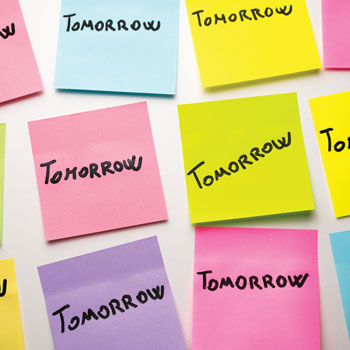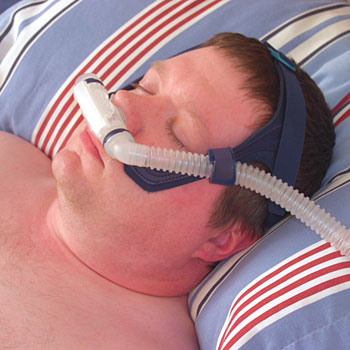Restoring trust after rough times in residency
The pandemic made many medical trainees less trustful and engaged. A program director talks about how to win them back.
Being a medical resident is never easy, but the experience was particularly hard for those who were beginning their training in 2020.
The COVID-19 pandemic caused medical education and care to move from in-person to the internet as much as was feasible, and protests for racial justice inspired rethinking about many institutions and practices.

In response, “Everyone did the best they could. … Learners tried to adjust to the new non-normal,” as Rebecca Berman, MD, put it in a Perspective on pandemic learners, published by the Journal of General Internal Medicine on Sept. 16, 2024.
Despite efforts on both sides to deal with the situation, a number of failures by health care institutions may have led trainees to trust their supervising authorities less than their predecessors did.
Dr. Berman, who is the internal medicine program director at the University of California, San Francisco (UCSF), listed four in her article: failure to protect (e.g., shortages of personal protective equipment), failure to pivot (such as long-lasting policies regarding social distancing), failure to include (few opportunities to be involved with decision-making bodies), and failure to support (insufficient mental and physical health resources).
She recently discussed how medical educators can correct for these failures and rebuild trusting relationships with today's trainees.
Q: What motivated your article?
A: I was talking to a mentor of mine and mentioned, “What's hard about leading as a residency program director during the pandemic is that it feels like the learners don't trust me, and when I talk to other program directors, they're saying the same thing, so it's not something about my style of leadership. It just seems to be that everyone used to believe their program director had their back, and now they're worried the institution does not have their back. What do we do?” She said, “Well, maybe you should think about why they don't trust institutions.” And that is what sparked the idea.
Q: Do you think loss of trust was an unavoidable effect of the pandemic?
A: It's hard to say. I do think that we are at a weird point in history where, societally, people are trusting institutions less, and so some of this may have been in that context. It seems broad; it's not like there are some institutions where people say, “Oh, they did it perfectly during the pandemic.” I think it was an unwinnable situation where every institution made mistakes. It's just a question of which ones. We prioritized our residents for vaccines, but we were still not allowed to pay for food [for trainee gatherings] well after society had opened up. … It may not have been avoidable. People only trained for three years, and this was their reality, and now we have to help them recover from that.
Q: Could you offer an example of some of the challenges?
A: One thing that happened here at UCSF was that, like many other programs, we received a work-hour citation in 2019. We were all madly shortening work hours during the pandemic, which meant I was having to institute a ton of change at a time when people really did not want any more change. Even when we would propose things that you would think would be really popular, like “We'd like to give everyone an extra day off every month and have five days off instead of four,” that was remarkably controversial with the residents, because change seemed hard. Everyone loves the fifth day off now, but at the time, that was really hard.
Q: How did you and your colleagues develop solutions?
A: We felt in the end, what makes people love their institutions or love where they work is the people that they work with. Figuring out how to build back those bridges whether with each other as classmates or with faculty as mentors [was the priority]. A lot of that was focused on building community in terms of hosting events and building subcommunities, whether those were identity-based or by who your mentor is.
Also really focusing on bringing joy back into the clinical environment [was key]. We've been doing a lot around getting people back in the habit of going to in-person conference and viewing that as a sort of “diastole” during the day, to recharge, learn something, and connect socially. One other thing we've been doing is making our mentorship more robust, so that everyone feels like they have a go-to faculty member in the program and really know someone.
Q: How can you tell if such strategies are effective?
A: It does seem to be working. I ran into one of our interns on Monday, which here was Indigenous Peoples' Day so we did not have conference, and he was saying how he was sad not to have that hour as a moment for learning and socializing. And that's exactly what we've been trying to do, so that's nice. Certainly, the residents are voting with their feet; they're coming. The temperature among the residents feels back to the “before” times, which is really delightful.
Q: What advice would you give other academic leaders on how to rebuild trust?
A: Make sure you're doing the basics right—you're tending to people's mental health and physical health and they feel that they have time to take care of those things. You want to make sure that you're communicating well, because inevitably, there are things that are difficult to understand in your bureaucracy and helping people at least understand why things are the way they are can be helpful.
And then, studies do show that building connections reduces moral injury. Figuring out how to build connections in your community is key. Having empathy for this generation is really important. It's very easy to get into the mindset of “Why are they different from us?” as opposed to thinking that all of society is undergoing a huge reckoning with the centrality of work in our culture, and what does it mean to be really dedicated to your job and make space for other things. “How can we work together to make medicine better for everyone?” is a good frame shift.
Q: How do these efforts affect the faculty?
A: We found that encouraging people to show up, whether it's for in-person mentorship or bringing people to the bedside or going to conference, is actually good for the faculty, too. We all work really hard, and that personal connection really makes you remember why you do the work.
Q: How much of this is related to larger societal change versus direct pandemic effects?
A: We're all thinking about that, right? I am very happy that I no longer have meetings that start before eight or after six most of the time, and I leave work at five most days. That's really nice and wasn't what my career looked like earlier. Helping people figure out “How can you work hard and really love what you do and be really dedicated to it and have space outside?” is something we should do for everybody.
Q: Will these issues be ongoing?
A: From a pandemic learner standpoint, there's going to be a very long washout period, because all the people in medical school right now were students during the pandemic. They also need to go through all their training. It's not simply “Oh, that one class graduated, and now anybody impacted by COVID is gone,” but I do think it probably was most felt by that class [of 2023]. Having heard from members of that class who graduated and are now a year out, many of them are doing a lot better and are feeling more positively just from having some space and time to explore community and build mentorship and taking time to enjoy their jobs outside of the context of training. But I think it's going to take a while for us to really know.
Q: Any final thoughts on this topic for other attendings?
A: Don't write off this generation. They're great, they're trying to do the right thing, and we need to work together to help make medicine better.





